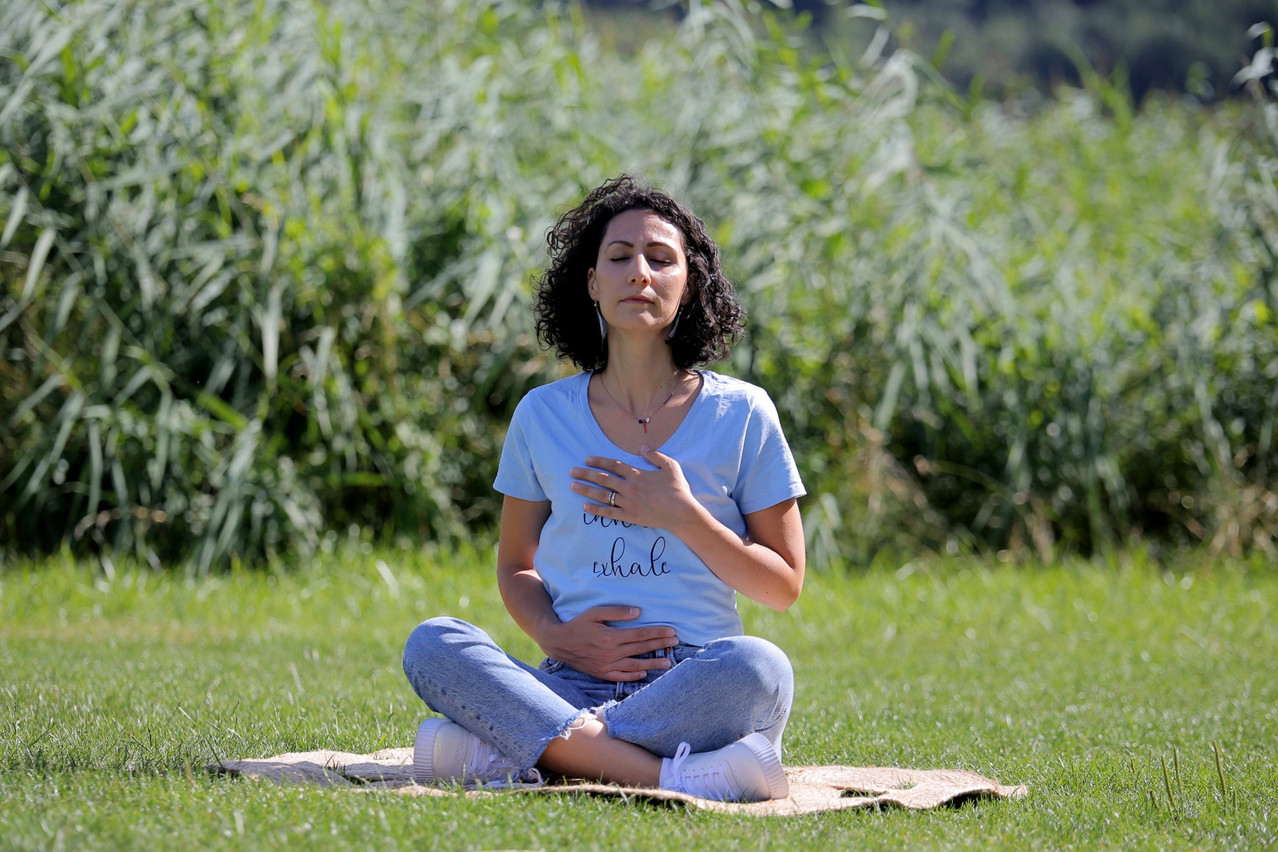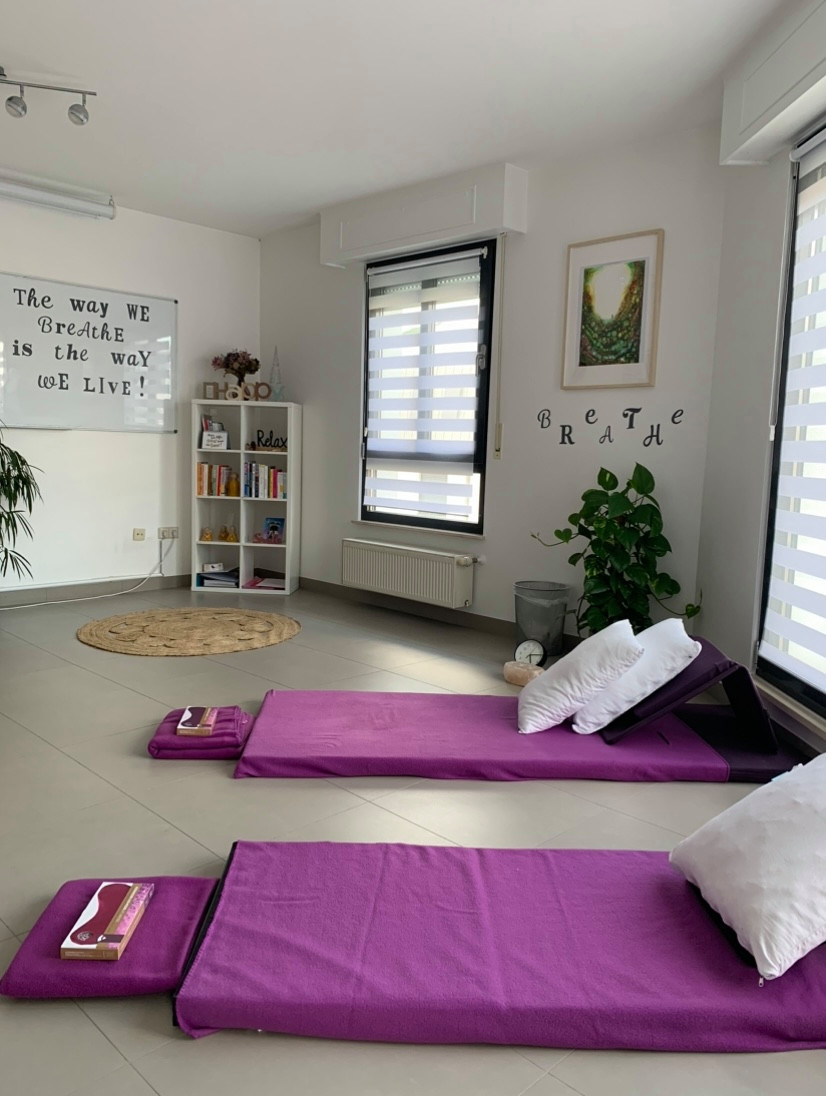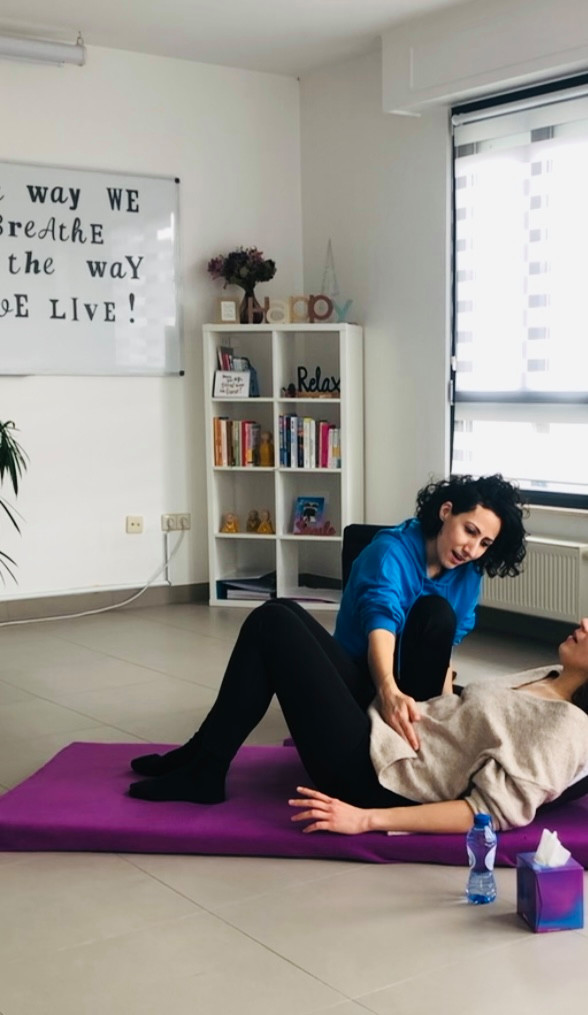After spending several years working for Luxembourg’s ministry of family affairs, integration and the Greater Region, Yeliz Yorcu is now a breathwork coach.
What, you might ask, is a breathwork coach? And how did someone working in the civil service shift into such a radically different domain?
Connection to one’s body
Yorcu experienced difficulties linked to the delivery of her second child in 2015, leading to physical trauma that had severe consequences on her daily and social life. Doctors were unable to diagnose the issue, she explained, and the disappointment of every failed suggestion caused her to fall into a deep depression. “It was a hard time for me.”
Then, in 2019, Yorcu met a doctor in Luxembourg who recommended that she see a professional in Geneva, who was able to diagnose the problem and get her the necessary surgery.
“It was during that period that I began my path in personal development and in research of trainings of mind-body approaches,” she explained. While on Easter holiday in Turkey, Yorcu took a two-day breathwork seminar in Istanbul that was her first introduction to the practice.
It allowed me to connect again with my body
“The first impression was: it was incredible. I would never have thought that breathing properly could be that powerful,” said Yorcu. “It allowed me to connect again with my body, which I refused during years. And I felt my body! I felt alive in my body again.”
“That seminar was really very powerful and helpful,” she added. “And I saw also during this seminar, that I’m not the only one who is suffering in a silent battle. Many women have different problems, which are taboo in our society, or they don’t dare to speak about it, they can’t describe it, and so on.”
“But the breathing helps you really express things that you would never have done. It really helps to integrate this trauma and this emotional burden, and to express it.”
Professional transformation
After returning to Luxembourg, Yorcu decided to look for training sessions. She completed her professional training, her traineeship and received her certificate in May 2023. This was complemented by a respiratory anatomy training at the Université catholique de Louvain in Belgium, which helped her to understand different types of the body and breathing difficulties, as well as training sessions with Joël Jégo, a breathwork coach, trainer and representative of France at the International Breathwork Foundation (IBF) from 2014 to 2020.
“I still take some other trainings,” said Yorcu. “The more I have knowledge in this domain, the more I am interested to know, and to share it with people.”
So what exactly is breathwork?
Breathing exercises are quite different from a breathing session, Yorcu explained. “Breathing exercises last 10, 15, 20 minutes, and it’s different from a breathwork session, which lasts about one hour and a half.”
“It is not only conscious breathing, but it is conscious and connected breathing, which means that you have no pauses between inhale and exhale. During one hour and a half, you’re breathing through the mouth, you are lying on a mat, the knees bent, and you have the eyes closed and you have the mouth wide open.” Participants may even keep a sort of mouthguard in their mouth during the session to ensure that their mouth does not close.
Tell me how you breathe, and I’ll tell you how you live
This transformational breathing method has three fundamental elements. “First of all, you have to use your diaphragm. It is three beats inhale, one beat exhale--so the exhale is really very short, compared to the inhale. And the third [aspect] is the exhale should not be forced; it should really just be very slow and relaxed.”
A session starts with a welcome interview, during which Yorcu explains what transformational breathing is and a person can ask questions. Then the person lies down on a mat and Yorcu analyses their “respiratory scheme.” “Tell me how you breathe, and I’ll tell you how you live,” she said, explaining the purpose of this analysis.
Afterward, the session begins. Guided by Yorcu, the person moves their arms and legs during two to three minutes to “activate their energy.” Following that, the person--who’s lying on the mat with their eyes closed and mouth open--inhales and exhales, listening to Yorcu’s guidance. She also observes the person’s body and applies pressure in certain areas. “We base our pressures on the cartography [of the body] which comes from the Chinese method.”
Sessions end with a 10-minute rest period, allowing people to integrate all the experiences they’ve had during the session. Some people cry, some people laugh, she explained, which means that muscles and emotions have been released. The session then concludes with a 10- to 15-minute feedback period.
Sense of “rebirth”
Yorcu said that she felt “connected” to her body after her first breathwork session. What kind of reactions and feelings do people express after their sessions?
“90% of the people, they fall asleep during the rest time!” replied Yorcu. Breathing through the mouth for an hour and a half is actually fairly tiring, but falling asleep is also a sign of relaxation and disconnection from the outside world. When she wakes them up and asks them how they feel, she says they often answer that it’s like a “rebirth.”
What is wonderful about breathwork is that it is accessible for everyone. For men, for women, for all ages
“It’s really that powerful. They feel much more serene, they feel calm. The transformation begins from the first session.” Yorcu added that one breathwork session, however, is not enough. She gives people daily breathing exercises, along with music playlists, and suggests at least three sessions.
“Accessible for everyone”
Throughout our interview, Yorcu often mentioned that the people who come to see her are women. Is breathwork only--or primarily--for women?
“What is wonderful about breathwork is that it is accessible for everyone. For men, for women, for all ages. Adults, children from eight years can do breathwork.” The majority of people who come to see Yorcu are indeed women (or children), but she has met many practitioners who are men during the seminars she attends.
Yorcu and Respire Plus’ Jégo are conducting called “Regain your breath” here in Luxembourg that will take place in English and in French. These are scheduled for 2 December, 17 February and 20 April, explained Yorcu. And in January, she plans to launch breathwork workshops for kids called “Breath of joy,” corporate training in mid-2024 and parent-child and couple sessions later in the year.
And as to who can benefit from breathwork? Yorcu’s answer is pretty broad: it can be anyone who suffers from panic attacks, burnout, migraines, digestive problems, cancer and even cancer survivors.
At the end of our discussion, I double check with Yorcu whether it’s all right to share what she has told me about her physical trauma. “Yes,” she replies. “And if you even mention the depression, it is okay for me. I mean, now I’m grateful for it. My deepest wound became my biggest gift, and now I’m using this gift to share it with others.”
Find out more about Yeliz Yorcu and Letzbreathe .







